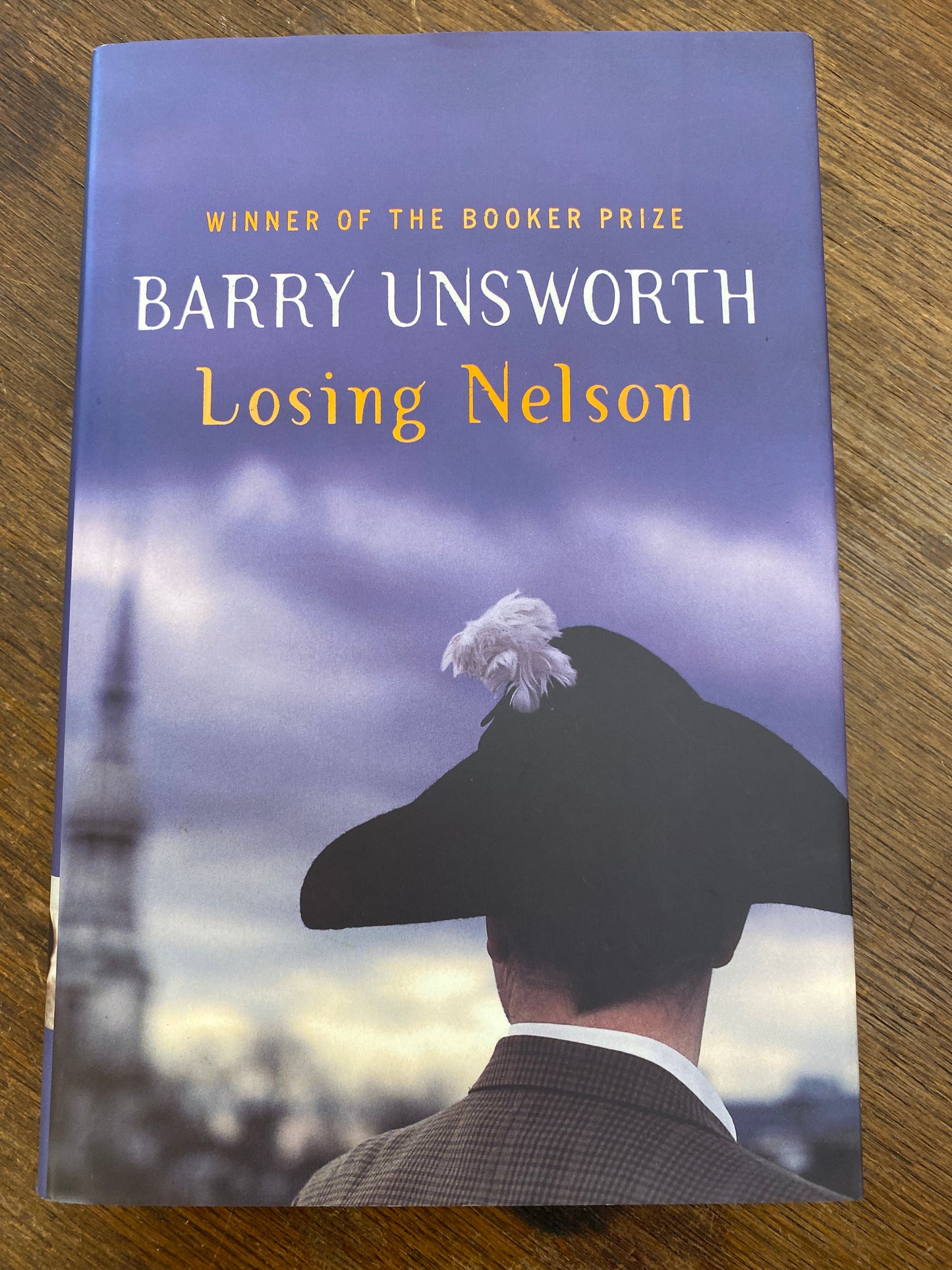Losing Nelson by Barry Unsworth
Losing Nelson by Barry Unsworth
Couldn't load pickup availability
Barry Unsworth, author of the Booker Prize-winning Sacred Hunger and the bestselling Morality Play , has long established his genius for both historical narrative and for sharply observed, fantastically odd characters and stories. In Losing Nelson , Unsworth's most brilliantly imagined novel yet and a nominee for the Booker Prize, he has enlisted all these proven talents in a way unprecedented in his earlier work.
Every day, Charles Cleasby relives the events of Lord Horatio Nelson's life. He holds no regard for year-by-year chronology, so his life is a bustle of a political confrontation in 1797, for instance, might be followed immediately by a climactic sea battle in 1805. He reenacts the battles in his basement on a huge blue-glass table, moving the perfectly rendered ships that represent Nelson's Royal Navy and its enemies, thus reliving Nelson's triumphs.
Losing Nelson is a novel of obsession, the story of a man unable to see himself separately from the hero he mistakenly idolizes. Cleasby is, in fact, a Nelson biographer run amok. He is convinced that Nelson--Britain's greatest admiral, who finally defeated Napoleon, and lost his own life, in the Battle of Trafalgar--is the perfect hero, but in his research he has come upon an incident of horrifying brutality in Nelson's military career that simply stumps all attempts at glorification.
Admiral Nelson, faults and all, is a hero to many, but to Cleasby he is something more. Cleasby has come to think of himself as Nelson's dark side, the fallible human flip-side of the perfect man. And so Nelson's transgression represents more than just a chink in his thesis. Further, Cleasby's new assistant, Miss Lily of Avon Secretarial Services, insists on maintaining a running criticism of Nelson as she takes dictation, not to mention the objections she voices to the isolated, sheltered way Cleasby lives his life. Something has to give, and give it does--in the most astonishing and entertaining of ways.
Share


